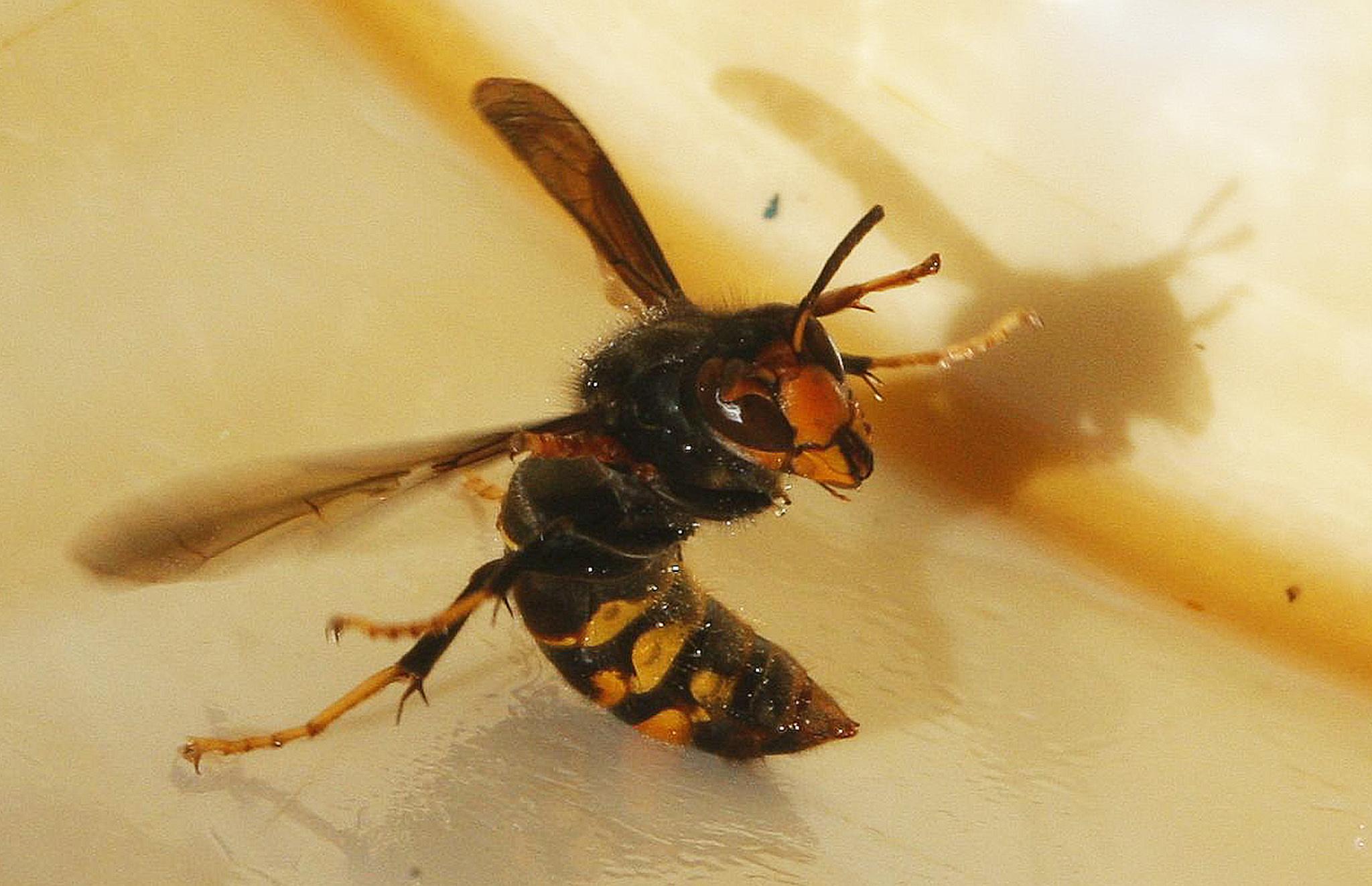Asian killer hornet discovered in Devon posing threat to dwindling native bee populations
Insect incursion discovered near beehives

An Asian hornet has been seen in near Woolacombe in Devon, the National Bee Unit has said.
While the foreign species does not pose a risk to human health, its presence does threaten native honey bees.
The sighting, near an apiary, is the first since last year, when a nest was discovered in Gloucestershire.
Bee keepers tracked down and destroyed that nest, containing the incursion.
Honey bees are in decline and play an important role in maintaining British crops.
Nicola Spence, Defra Deputy Director for Plant and Bee Health, said in a statement: "We recognise the damage (Asian hornets) can cause to honey bee colonies.
"That’s why we are taking swift and robust action to locate and destroy any nests in the Devon area following this confirmed sighting.
"Following the successful containment of the Asian hornet incursion in Gloucestershire last year, we have a well-established protocol in place to eradicate them and control any potential spread.
"We remain vigilant across the country, working closely with the National Bee Unit and their nationwide network of bee inspectors."
Authorities are setting up a surveillance zone stretching one to two kilometres around the initial sighting.
They are set to open a local control centre to coordinate the response and will deploy bee inspectors equipped with infrared cameras and traps to find any nests.
They will then use pesticides to kill the hornets and destroy the nests.
The hornets have become widespread in central and southern France and British authorities have long worries they could arrive in the UK, possibly hiding in imported goods.
Join our commenting forum
Join thought-provoking conversations, follow other Independent readers and see their replies
Comments
Bookmark popover
Removed from bookmarks